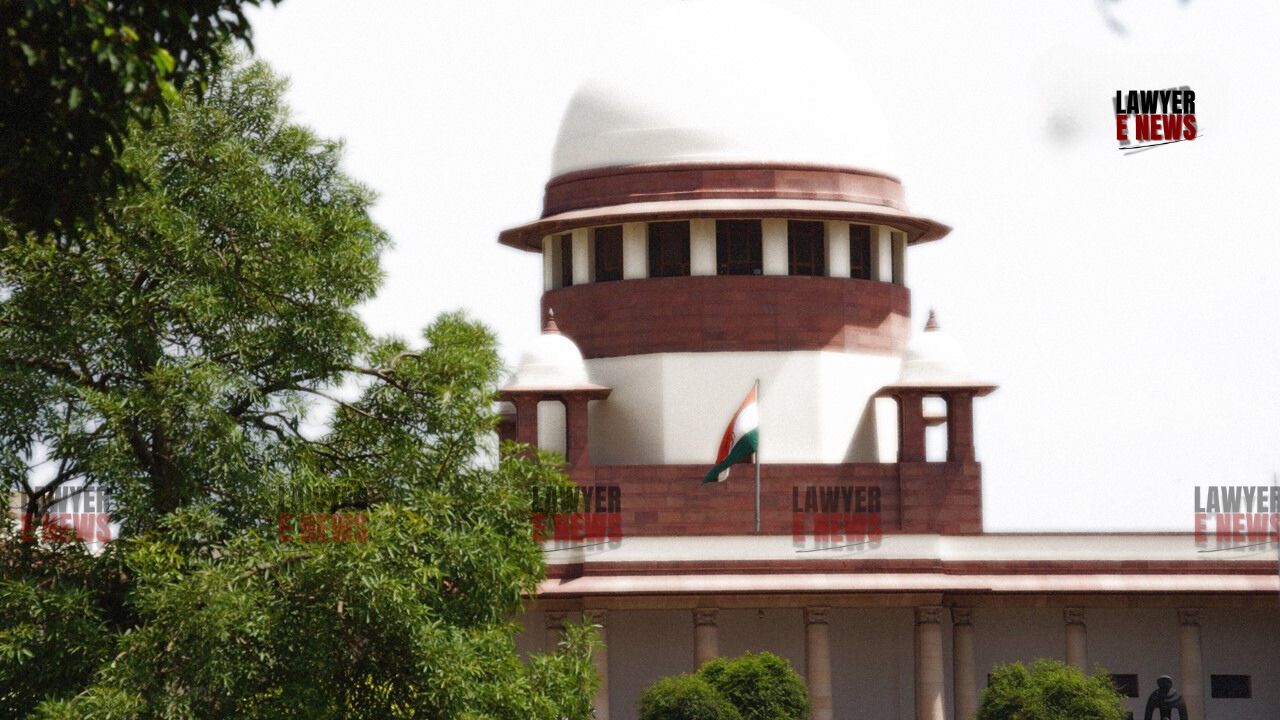-
by Admin
15 February 2026 5:35 AM



Supreme Court of India delivered a landmark judgment in favor of the Haryana Urban Development Authority (HUDA), allowing the acquisition of over 950 acres of land in Panchkula for development purposes. The ruling overturned a 2008 Punjab and Haryana High Court decision that had quashed the State's acquisition notifications under Sections 4 and 6 of the Land Acquisition Act, 1894.
The judgment, delivered by a bench comprising Justice Surya Kant and Justice K.V. Viswanathan, reasserted the State's authority to acquire land for public purposes and clarified the limited scope of Section 5A of the Land Acquisition Act, which allows landowners to raise objections to proposed acquisitions.
"Collector's Recommendations Not Binding on Government": Supreme Court Upholds State's Discretion
At the heart of the case was the respondents' challenge that their objections under Section 5A were not adequately considered, particularly as the Collector had recommended exempting their land from acquisition. However, the Supreme Court rejected this argument, emphasizing that while Section 5A provides a safeguard for landowners, the recommendations of the Collector are not binding on the State.
"The Collector’s report can form the 'basis' of the State’s decision, but the Government is free to independently evaluate and decide on the objections," the Court stated.
— [Para 17]
The Court further underscored that the State Government had relied on a High-Powered Committee's findings, which concluded that the constructions on the land were unauthorized. Based on this, the State's decision to proceed with the acquisition was found to be lawful and in the public interest.
"Negative Equality Cannot Be Claimed": Supreme Court Rejects Discrimination Argument
The respondents had also argued that their land was being unfairly acquired while similarly placed lands, including that of Maharaja Harinder Singh, were exempted from acquisition. This argument was based on Article 14 of the Constitution, which guarantees equality before the law. The High Court had agreed with this contention, finding the acquisition discriminatory.
However, the Supreme Court took a different view, holding that 99.78% of the total land notified for acquisition had, in fact, been acquired. The Court clarified that Article 14 cannot be invoked to demand "negative equality" or exemption simply because another party may have received an undue benefit.
"Article 14 cannot be ordinarily employed as a ground to claim negative equality, especially when doing so would undermine the acquisition process and public interest," the Court ruled.
— [Para 30]
The Court further noted that the land of Maharaja Harinder Singh had since been acquired through separate notifications, nullifying the respondents' discrimination claims.
Supreme Court Rejects Settlement: "Public Interest Must Prevail Over Private Compromise"
During the pendency of the appeal, the State had proposed a settlement, agreeing to release the respondents' land if they provided part of it for public amenities and used the rest for charitable purposes. The respondents were willing to accept this offer. However, after scrutinizing the record, the Supreme Court found the State's decision to release the land to be arbitrary and lacking due consideration of public interest.
"The decision regarding release of the land is manifestly arbitrary... The Government cannot act whimsically or selectively in matters of public interest," the Court observed.
— [Para 43]
The Court rejected the settlement, emphasizing that such compromises could undermine the integrity of the land acquisition process and jeopardize the development goals for the entire area.
Doctrine of Merger and Article 142: Supreme Court Exercises Special Powers for Complete Justice
The respondents also argued that the present appeal should be dismissed based on the doctrine of merger, as the State's earlier appeal in the same case had been dismissed for non-prosecution. However, the Supreme Court invoked its powers under Article 142 of the Constitution to do "complete justice" in the case, carving out an exception to the doctrine of merger.
"The doctrine of merger is not a constitutional mandate and should not be applied in a straitjacket manner. Given the public interest at stake, this is a fit case for an exception," the Court held.
— [Para 53]
Conclusion: Supreme Court Allows Acquisition to Proceed, Ensures Fair Compensation
In its final orders, the Supreme Court allowed the appeals, setting aside the High Court's judgment and permitting the State to proceed with the land acquisition. The Court directed that possession of the land be taken immediately and that appropriate compensation be awarded to the respondents. The Court also granted the respondents the liberty to seek higher compensation under Section 18 of the Land Acquisition Act, should they find it necessary.
The ruling not only clarifies the limited binding nature of the Section 5A process but also reinforces the principle that public interest must guide land acquisition decisions, even when powerful landowners challenge them.
Date of Decision: October 21, 2024
Haryana Urban Development Authority vs. Abhishek Gupta etc.
